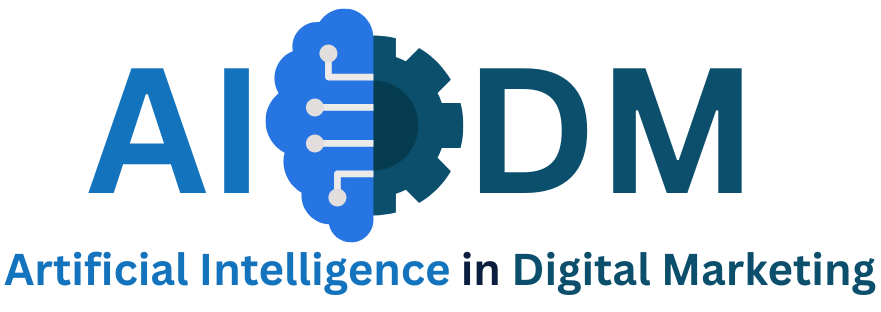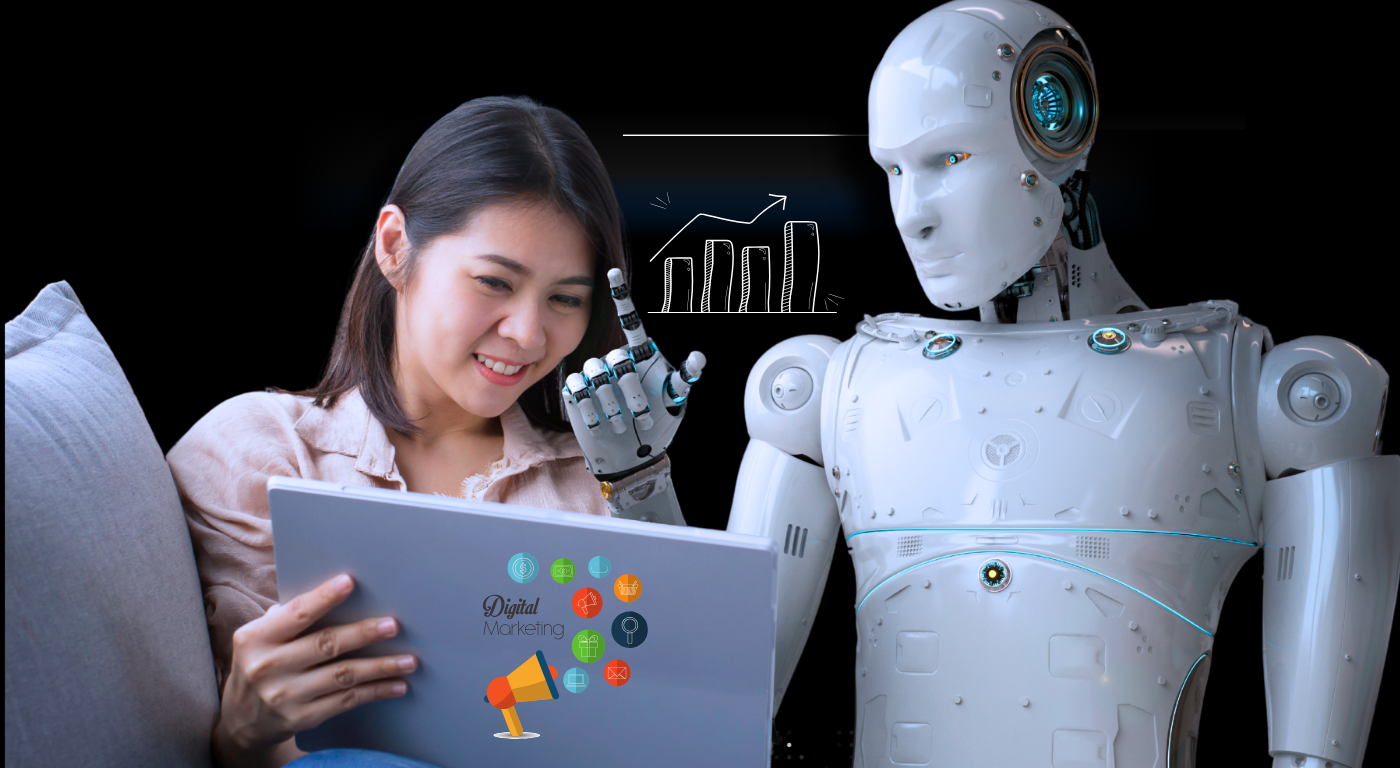Artificial Intelligence (AI) is revolutionizing digital marketing, enabling businesses to automate online marketing activities, personalize user experiences, and optimize campaigns with unprecedented precision and drive growth. From chat bots to predictive analytics, AI-driven tools are transforming marketer interactions with audiences. This article examines the concept of AI in digital marketing, its tools, real-world examples, benefits, challenges, required skills, and expert insights.
You can learn about:
- What is AI in Digital Marketing?
- AI Digital Marketing Tools
- Examples of AI in Digital Marketing
- How to Use AI in Digital Marketing
- Advantages & Disadvantages of AI in Digital Marketing
- Skills Required for Digital Marketers to Implement AI
- Expert Opinions on AI in Digital Marketing
- FAQs
What is AI in Digital Marketing?
AI in digital marketing refers to the use of artificial intelligence technologies—such as machine learning (ML), natural language processing (NLP), and predictive analytics—to automate, optimize, and amplify marketing practices.
AI helps marketers:
- Analyze large amounts of data quickly
- Customize content for individual users
- Automate repetitive tasks (e.g., email marketing, ad bidding)
- Improve customer interactions (e.g., chatbots, voice search)
- Predict consumer behavior and trends
According to a report by McKinsey, companies using AI in marketing see a 10-15% increase in revenue and 20-30% cost savings in campaign management.
AI Digital Marketing Tools
Here are some of the top AI-powered tools revolutionizing digital marketing:
| Tool Category | Popular AI Tools | Use Case |
|---|---|---|
| Content Creation | ChatGPT, Jasper, Copy.ai | Generate blog posts, ads, product descriptions |
| SEO & Analytics | SurferSEO, BrightEdge, SEMrush | Keyword research, content optimization |
| Email Marketing | Phrasee, Seventh Sense, Mailchimp | AI-driven subject lines & send-time optimization |
| Social Media | Lately, Hootsuite Insights | AI-powered social media scheduling & analytics |
| Chatbots & CRM | Drift, Intercom, Salesforce Einstein | AI chatbots for customer support |
| Advertising | Google Smart Bidding, Adext | Automated PPC bid optimization |
| Visual & Video AI | DALL·E, Synthesia, Canva Magic Design | Canva Magic Design AI-generated images & videos |
Examples of AI in Digital Marketing
- Personalized Recommendations – AI analyzes user behavior to suggest products or content.
- Programmatic Advertising – AI automates ad buying in real-time for maximum ROI.
- Chatbots – AI-powered chatbots handle customer queries 24/7.
- Voice Search Optimization – AI improves SEO for voice assistants like Alexa & Google Assistant.
- Predictive Customer Analytics – AI predicts user preferences to enhance engagement.
How to Use AI in Digital Marketing
- Content Creation and Optimization: Leverage AI tools to create and optimize content. Tools like Jasper or Writesonic helps to draft blogs and ad copies
- Enhance SEO Strategies – Leverage Clearscope or Frase for AI-driven keyword optimization.
- Optimize Ad Campaigns – Implement Google’s Smart Bidding for automated PPC adjustments.
- Improve Customer Support – Deploy AI chatbots (e.g., ManyChat) for instant responses.
- Analyze Consumer Behavior – Use IBM Watson or Google Analytics AI for predictive insights.
Advantages & Disadvantages of AI in Digital Marketing
| Advantages | Disadvantages |
| Hyper-Personalization – AI tailors content to individual preferences | High Implementation Cost – Advanced AI tools can be expensive. |
| Cost & Time Efficiency – Automates repetitive tasks, reducing manual effort | Data Privacy Concerns – Requires compliance with GDPR & other regulations. |
| Data-Driven Decisions – Provides real-time insights for better strategies | Lack of Human Touch – Over-reliance on AI may reduce authentic engagement. |
| Improved ROI – Optimizes ad spend and increases conversion rates | Complexity – Requires skilled professionals to manage AI systems. |
Skills Required for Digital Marketers to Implement AI
To leverage AI effectively, marketers should develop:
- Basic AI & Machine Learning Knowledge – Familiarity with NLP, predictive modeling.
- Data Analysis & Interpretation – Understanding AI-driven insights.
- Technical SEO & Automation – Using AI-powered SEO tools.
- CRM & Chatbot Management – Handling AI-driven customer interactions.
- Ethical AI Practices – Ensuring compliance with data privacy laws.
Expert Thoughts on AI in Digital Marketing
AI is not replacing marketers; it’s empowering them. The future belongs to those who can blend creativity with AI-driven insights.
– Neil Patel, Digital Marketing ExpertCompanies that ignore AI in marketing will fall behind. Personalization at scale is now a necessity, not a luxury. – Rand Fishkin, Founder of SparkToro
AI in digital marketing is not just a trend but a necessity. It allows marketers to deliver personalized experiences at scale. – Digital Marketing Expert.
Conclusion
AI in digital marketing is revolutionizing the industry, offering businesses unprecedented opportunities to connect with customers, optimize strategies, and drive growth. By understanding AI’s potential and developing the necessary skills, digital marketers can harness its power effectively.

